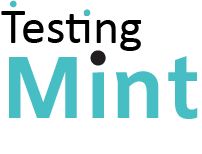Freelancing has become a popular choice for professionals in various industries, including software testing. As a software tester, you have a valuable skill set that can be utilized on a freelance basis, allowing you to work on multiple projects for different clients and enjoy the benefits of a flexible work schedule. In this blog post, we will guide you through the process of starting your freelancing journey as a software tester, whether you are a beginner or an experienced professional.
Assess Skills and Specializations
Before diving into freelancing, it’s important to assess your skills and determine your areas of specialization within software testing. This will help you identify your target market and set yourself apart from other freelancers. Consider the following points:
- Identify your strengths:
Determine the areas of testing you are good at, such as functional, performance, security, or usability testing. - Assess your experience:
Evaluate your previous work experience and projects to highlight your expertise in specific domains or industries. - Identify your niche:
Determine if you have specialized knowledge in certain tools, programming languages, or platforms, such as mobile app testing, web application testing, or automation testing.
Build Online Presence
Creating a strong online presence is essential for attracting potential clients. Following steps will help you establish your professional identity:
- Create a portfolio website:
Build a website to showcase your skills, experience, and previous projects. Include a dedicated section highlighting your testing expertise and certifications. - Optimize your LinkedIn profile:
LinkedIn is a powerful platform for networking. Create an impressive profile that highlights your skills, experience, and accomplishments as a software tester. - Leverage social media:
Utilize platforms like Twitter, Facebook, and GitHub to share your knowledge, engage with the testing community, and promote your services. - Request testimonials:
Reach out to previous employers or clients for testimonials that highlight your expertise, reliability, and professionalism.
Find Freelancing Opportunities
Once you have established your online presence, it’s time to find freelancing opportunities. You can consider the following strategies:
- Freelancing platforms:
Join popular freelancing platforms such as Upwork, Freelancer, or Toptal. Create an attractive profile that highlights your skills, and apply for testing projects that match your expertise. - Networking:
Attend industry conferences, join testing communities, and connect with professionals who might need your services. Networking can lead to referrals and long-term collaborations. - Job boards:
Explore job boards like Indeed, LinkedIn Jobs, or specialized testing websites that post freelance testing opportunities.
Set Rates and Negotiate Contracts
Determining your rates and negotiating contracts effectively is important for success as a freelance software tester:
- Research market rates:
Research the current rates for freelance software testers in your area and make adjustments to your rates accordingly. Take into account factors such as your level of experience, expertise, and the complexity of the project. - Define your pricing structure:
Decide whether you will charge hourly rates, project-based fees, or offer customized pricing models based on client requirements. - Negotiate contracts:
Clearly communicate your terms and expectations to clients. Define project scope, timelines, deliverables, and payment terms in a detailed contract to avoid misunderstandings.
Deliver Quality Work and Maintain Client Relationships
Once you secure testing projects, focus on delivering high-quality work and maintaining good client relationships:
- Understand client requirements:
Communicate effectively with clients to ensure a clear understanding of project objectives, expectations, and testing goals. - Stick to deadlines:
Timely delivery is important. Plan your work effectively and communicate any potential delays or challenges to the client. - Provide regular updates:
Keep clients informed about the progress of your testing activities, any bugs or issues discovered, and suggestions for improvement. - Seek feedback:
After completing a project, request feedback from your clients to measure their satisfaction and identify areas for improvement. - Maintain professionalism:
Be responsive, polite, and professional in your communications with clients. Address any concerns or questions promptly and maintain a positive working relationship.
Upskill and Stay Updated
To grow as a freelance software tester, continuous learning and staying updated with industry trends and advancements are essential. Following things will help you to upskill in your area:
- Attend webinars and conferences:
Participate in online webinars, virtual conferences, and workshops to enhance your knowledge and learn about the latest testing methodologies and tools. - Acquire certifications:
Invest in relevant certifications such as ISTQB (International Software Testing Qualifications Board) to validate your skills and demonstrate your commitment to professional growth. - Join testing communities:
Engage with online testing communities, forums, and social media groups to connect with fellow testers, share knowledge, and stay updated on industry developments. - Experiment with new tools:
Keep yourself updated on the latest testing tools and technologies. Try out automation frameworks, test management systems, and performance testing tools to enhance your skills.
Conclusion
Freelancing as a software tester allows you to work on your own, use your skills, and have the freedom to select projects. To succeed, assess your abilities, create an online presence, find freelance work, charge reasonable rates, deliver excellent results, and keep learning. Freelancing requires dedication, discipline, and good communication. Start your freelancing journey as a software tester with confidence and enthusiasm.

